"Gasland" Movie Explosive for Drilling Industry
Submitted by Anne Landman on

Submitted by Anne Landman on
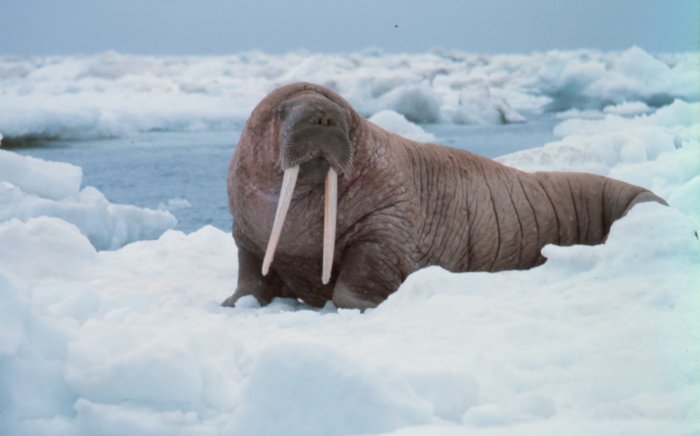 On June 15, the CEOs of ExxonMobil, ConocoPhillips, Shell, Chevron and BP were grilled by the House Subcommittee on Energy and Natural Resources. Unsurprisingly, much of what they said was spin. They paraded industry investments in alternative energy and safety that make up a vanishingly small percentage of their balance sheets. BP's competitors claimed again and again that they would never have made the catastrophic mistakes that led to the collapse of the Deepwater Horizon. But the hearing's scariest moment came when Exxon CEO Rex Tillerson told the truth. Tillerson stated that when oil spills occur "there will be impacts." According to ExxonMobil, the cleanup effort launched by BP represents the best efforts of the oil companies. For the oil companies, this travesty is the cutting edge of safety and environmental protection.
On June 15, the CEOs of ExxonMobil, ConocoPhillips, Shell, Chevron and BP were grilled by the House Subcommittee on Energy and Natural Resources. Unsurprisingly, much of what they said was spin. They paraded industry investments in alternative energy and safety that make up a vanishingly small percentage of their balance sheets. BP's competitors claimed again and again that they would never have made the catastrophic mistakes that led to the collapse of the Deepwater Horizon. But the hearing's scariest moment came when Exxon CEO Rex Tillerson told the truth. Tillerson stated that when oil spills occur "there will be impacts." According to ExxonMobil, the cleanup effort launched by BP represents the best efforts of the oil companies. For the oil companies, this travesty is the cutting edge of safety and environmental protection.
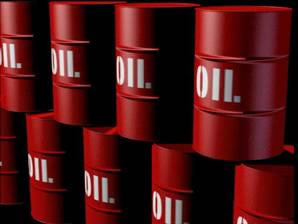 BP and the media express quantities of oil gushing from BP's leak in the Gulf in different ways. The amount of oil coming out of the leak is most frequently expressed in barrels, but how much is that? Can people really relate to a barrel as a quantity? After all, we buy staples like gasoline, milk, and water by the gallon. To make it even more complicated for the public to understand the quantities being discussed, the amount of liquid in a barrel varies with what is being measured. Barrels of chemicals or food, for example, contain 55 gallons. A whiskey barrel is 40 gallons; a barrel of beer contains 36 gallons; a barrel of ale contains 34 gallons. (And the latter two are imperial gallons, which are just under two-tenths more than an American gallon.) All these variations in the barrel as a quantity of measure only further confuse the concept of what a barrel of oil looks like. Moreover, since oil companies started shipping oil in tankers they rarely actually ship oil in barrels anymore, so the barrel as a measurement has less practical use.
BP and the media express quantities of oil gushing from BP's leak in the Gulf in different ways. The amount of oil coming out of the leak is most frequently expressed in barrels, but how much is that? Can people really relate to a barrel as a quantity? After all, we buy staples like gasoline, milk, and water by the gallon. To make it even more complicated for the public to understand the quantities being discussed, the amount of liquid in a barrel varies with what is being measured. Barrels of chemicals or food, for example, contain 55 gallons. A whiskey barrel is 40 gallons; a barrel of beer contains 36 gallons; a barrel of ale contains 34 gallons. (And the latter two are imperial gallons, which are just under two-tenths more than an American gallon.) All these variations in the barrel as a quantity of measure only further confuse the concept of what a barrel of oil looks like. Moreover, since oil companies started shipping oil in tankers they rarely actually ship oil in barrels anymore, so the barrel as a measurement has less practical use.
Submitted by Sari Williams on
![]()
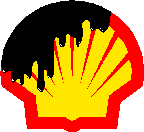 As the oil spill in the Gulf of Mexico continues to dominate headlines around the world, public outrage is being focused more intensely upon BP and its gaffe-prone CEO Tony Hayward. But amidst this crisis, the public should not forget the atrocities committed by other massive oil companies. For example, Royal Dutch Shell's drilling operations have been spilling oil into the Niger Delta in Nigeria since 1958. Because Nigeria is an impoverished nation and oil revenues fund a majority of government operations, Shell and other companies have been able to drill and pollute without serious oversight for all these years. It is estimated that 13 million barrels of oil have spilled into the delta, making life even more difficult for the region's destitute residents. Shell blames the constant spills on attacks from "rebels," who are in fact minority ethnic groups who feel they have been exploited and displaced by foreign oil companies. But Shell would never consider pulling out of the region or finding ways to avoid ethnic strife. Instead, Shell has proceeded with business as usual, and spilled a record 14,000 tons of crude oil into the delta last year.
As the oil spill in the Gulf of Mexico continues to dominate headlines around the world, public outrage is being focused more intensely upon BP and its gaffe-prone CEO Tony Hayward. But amidst this crisis, the public should not forget the atrocities committed by other massive oil companies. For example, Royal Dutch Shell's drilling operations have been spilling oil into the Niger Delta in Nigeria since 1958. Because Nigeria is an impoverished nation and oil revenues fund a majority of government operations, Shell and other companies have been able to drill and pollute without serious oversight for all these years. It is estimated that 13 million barrels of oil have spilled into the delta, making life even more difficult for the region's destitute residents. Shell blames the constant spills on attacks from "rebels," who are in fact minority ethnic groups who feel they have been exploited and displaced by foreign oil companies. But Shell would never consider pulling out of the region or finding ways to avoid ethnic strife. Instead, Shell has proceeded with business as usual, and spilled a record 14,000 tons of crude oil into the delta last year.
Submitted by Anne Landman on
 Last year the federal government approved a 582-page, regional spill plan for the Gulf of Mexico. Sounds comprehensive, right?
Last year the federal government approved a 582-page, regional spill plan for the Gulf of Mexico. Sounds comprehensive, right?
One of the first things BP did after oil started gushing into the Gulf was to spray more than 1.1 million gallons of a dispersant with the optimistic name "Corexit" onto the oil. Then BP hired Louisiana fishermen and others to help with cleanup and containment operations. About two weeks later, over seventy workers fell sick, complaining of irritated throats, coughing, shortness of breath and nausea. Seven workers were hospitalized on May 26. Workers were engaged in a variety of different tasks in different places when they got sick: breaking up oil sheen, doing offshore work, burning oil and deploying boom. BP officials speculated that their illnesses were due to food poisoning or other, unrelated reasons, but others pointed out how unlikely these other causes were, since the sick workers were assigned to different locations.
 Apparently not. Shauna Ahern of the famous Gluten-Free Girl blog is paid to write a blog for the National Pork Board. She just wrote a piece about a factory hog farm she visited and how wonderful it was. Here's an excerpt:
Apparently not. Shauna Ahern of the famous Gluten-Free Girl blog is paid to write a blog for the National Pork Board. She just wrote a piece about a factory hog farm she visited and how wonderful it was. Here's an excerpt:
The entire place felt warm. Even though there were something like 2,500 pigs there, taken from birth to the market (farrow to finish, in pork production terms), the whole place felt calm and well-kept. It felt like a home.
I've been to a factory hog farm, too, and it was also a "family farm." But that didn't change the fact that there were 4,000 pigs crammed into one building eating unhealthy diets and unable to engage in natural hog behaviors, like rooting. If it felt like a home, it was a home sitting on top of half a year's worth of hog manure.
Submitted by Anne Landman on
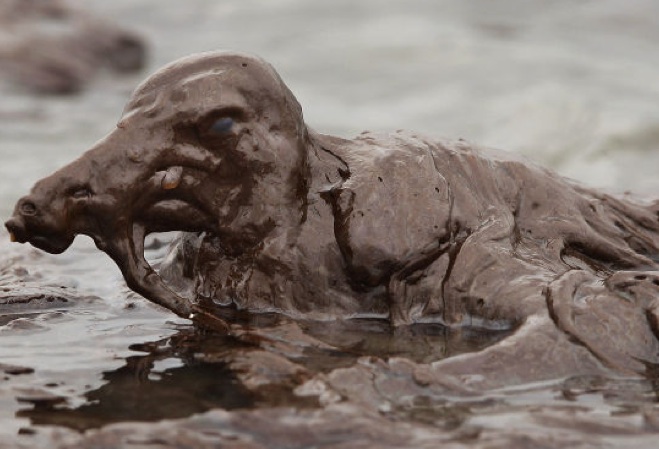 An oiled bird struggles on the Gulf coast (Associated Press)Now that it is recovering some of the oil pouring out of the massive leak at the bottom of the Gulf's floor, BP has found another way to try to repair its reputation: the company announced that it has created a new wildlife fund that will benefit from any profits B
An oiled bird struggles on the Gulf coast (Associated Press)Now that it is recovering some of the oil pouring out of the massive leak at the bottom of the Gulf's floor, BP has found another way to try to repair its reputation: the company announced that it has created a new wildlife fund that will benefit from any profits B
Submitted by Anne Landman on
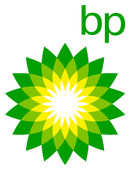 BP has purchased search terms relating to the Gulf oil spill disaster on Google, Yahoo and Bing, a move some say is designed to limit the public's exposure to news reporting about the Deepwater Horizon oil catastrophe.
BP has purchased search terms relating to the Gulf oil spill disaster on Google, Yahoo and Bing, a move some say is designed to limit the public's exposure to news reporting about the Deepwater Horizon oil catastrophe.
Center for Media and Democracy (CMD)
520 University Ave, Ste 305 • Madison, WI 53703 • (608) 260-9713
CMD is a 501(c)(3) tax-exempt non-profit.
© 1993-2025